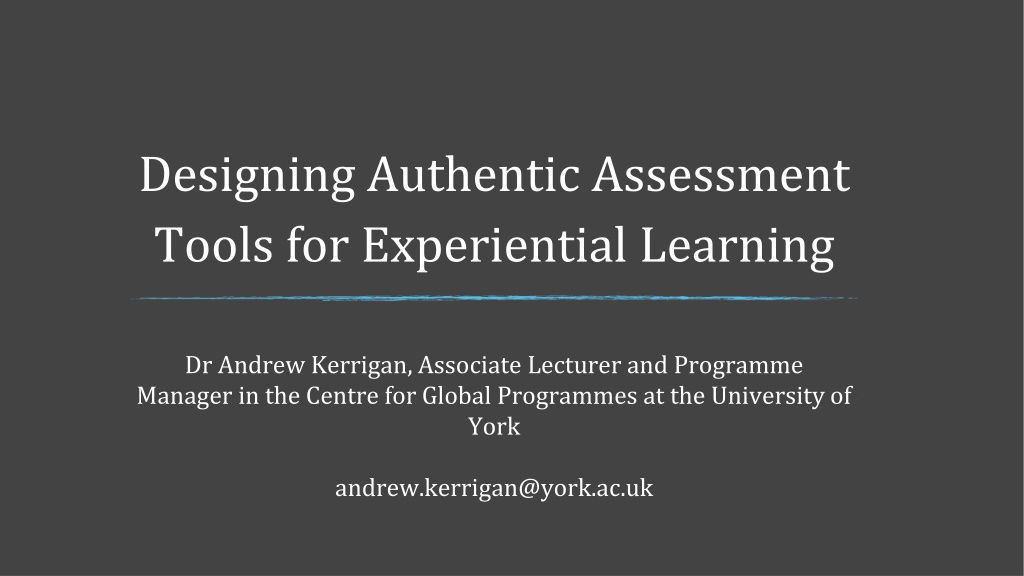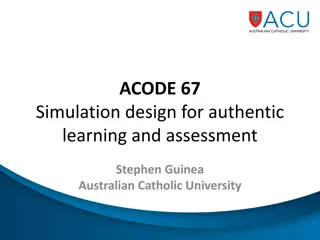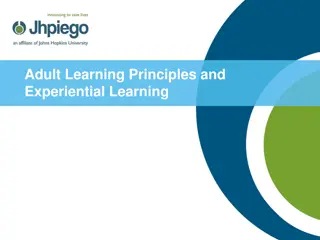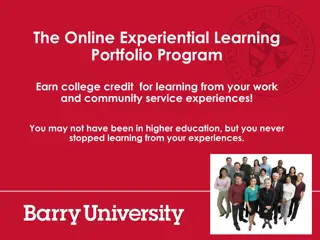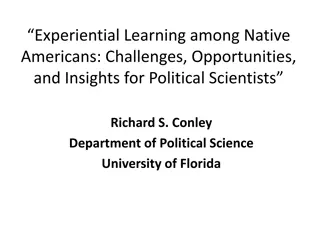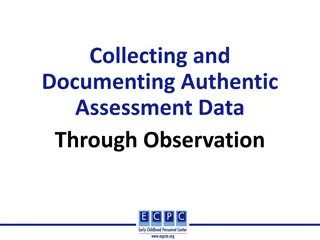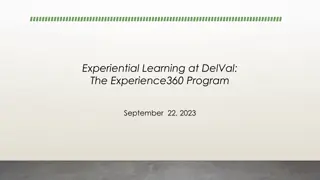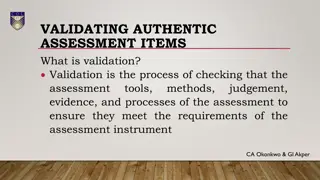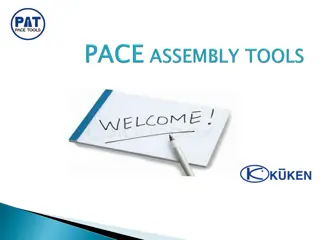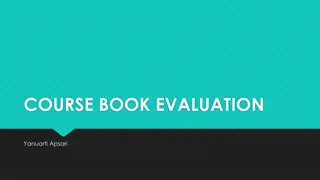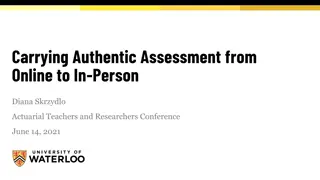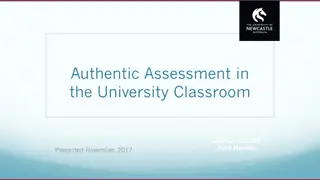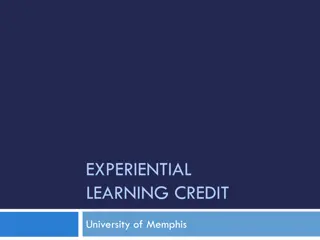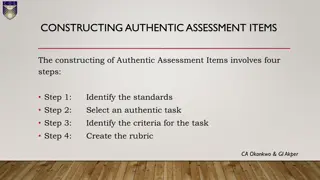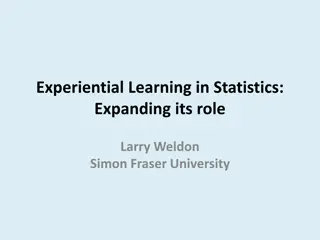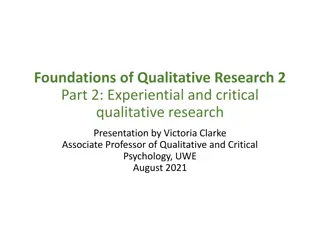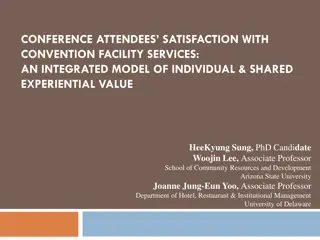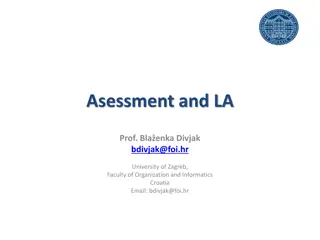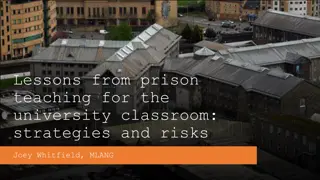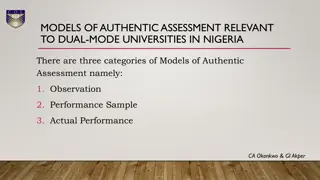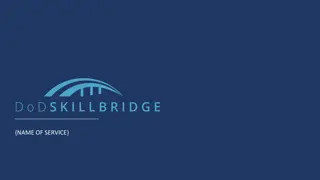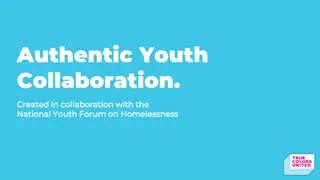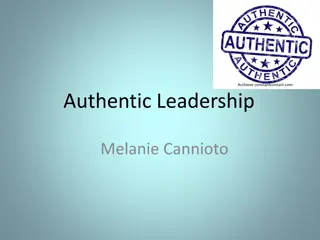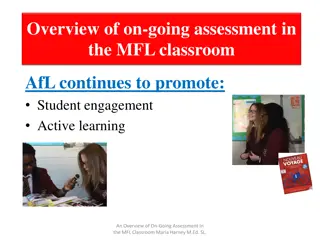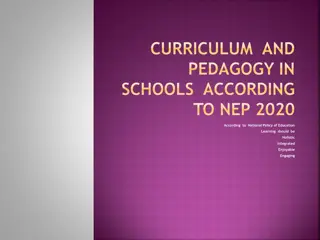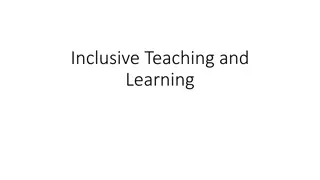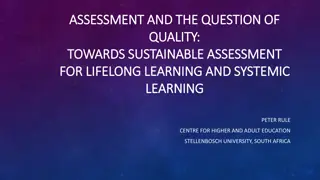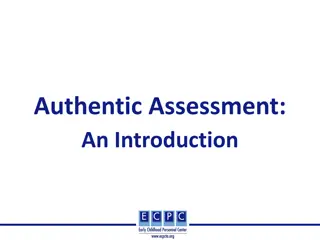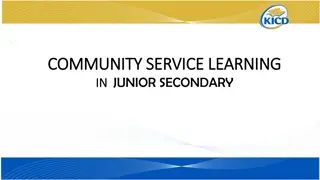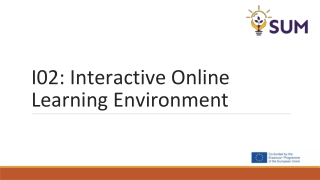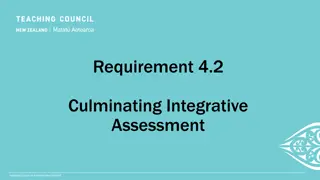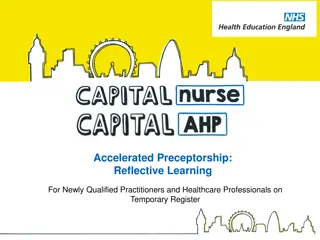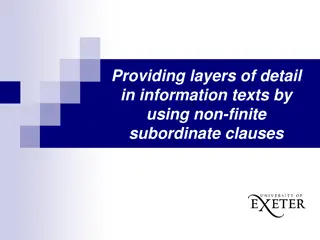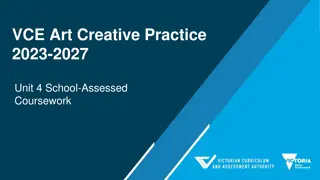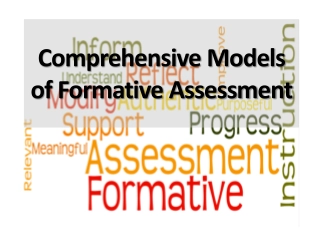Enhancing Experiential Learning Through Authentic Assessment Tools
Dive into the world of experiential learning with Dr. Andrew Kerrigan from the University of York as he shares insights on designing authentic assessment tools. Explore the Centre for Global Programmes' innovative approach to language, culture, and academic skills education, fostering critical thinking, creativity, and employability. Discover how the expansion and diversification of programmes focus on 21st-century skills preparation. Delve into a case study on intercultural studies, showcasing a unique joint programme between CUHK and York.
Download Presentation

Please find below an Image/Link to download the presentation.
The content on the website is provided AS IS for your information and personal use only. It may not be sold, licensed, or shared on other websites without obtaining consent from the author. Download presentation by click this link. If you encounter any issues during the download, it is possible that the publisher has removed the file from their server.
E N D
Presentation Transcript
Designing Authentic Assessment Tools for Experiential Learning Dr Andrew Kerrigan, Associate Lecturer and Programme Manager in the Centre for Global Programmes at the University of York andrew.kerrigan@york.ac.uk
The Centre for Global Programmes 2013 - Contract Language Courses of CELT + Study Abroad Office One-stop mobility shop Short Courses support university s Internationalisation Strategy Over 400 participants a year, students and staff 24 different courses Year round
Our Pedagogy Core business Language, Culture and Academic Skills Teaching staff with background in ELT Student-centred; Inductive learning Appeal to a range of learning styles High surrender value Task-based Learning Bespoke, non credit-bearing programmes foster culture of innovation Customer focused orientation
Expansion and Diversification of Programmes Increasing shift to Content Based Instruction since 2014 Content needs to have cross-faculty appeal Intercultural Competence Creativity Critical Thinking Employability Pedagogical principles retained
Twenty-first Century Skills A set of literacies, competencies and character qualities that are believed to be critically important to success in the modern world Literacies (literacy, numeracy, citizenship, digital, and media); competencies (critical thinking, creativity, collaboration); and character qualities (curiosity, initiative, persistence, resilience, adaptability, leadership) (HEA, 2017) Undergraduate students often have little idea what feedback like be more critical or lacks originality mean in the margins of their essays
Case Study: 2016 CUHK/York Joint Intercultural Studies Programme 25 UGs from CUHK; ELT Methodology Programme 25 York students both home and international 3 components: Theory and methods of cultural anthropology Role plays and thought experiments to explore cross-cultural miscommunications and critical incidents Watching the English readings, seminars and field work Assessed via D.I.E.O. framework with reflective journals
Benefits for All York students get top quality free education! Debriefs to help students best present experience on their CV Gateway experience for more significant mobility project Incoming students gain more authentic UoY experience Marketing message that we are international; we do invest in our students employability
Case Study: 2014 Employability Skills Component 20 UGs from Tohoku University, Japan Syllabus focusing on leadership, decision-making, interviews, etc. Inductive learning Task-Teach-Task framework Follow up reflections based on STAR framework Assessment tool: Interview task for post of CGP intern Assessment criteria written to be understood by students Generous, specific and timely feedback linked to onward goal setting
Case Study: 2017 Creativity Component 20 UGs from Tohoku University; 20 York students 5 sessions; from framing the problem to pitching the solution to adherents of the status quo Contact characterised by short presentations, thought experiments, reflective questionnaires, research, and discussion Mixed nationality and discipline groups developed original UoY strategy to increase student mobility to Japan Assessment tool: poster presentation to Study Abroad professionals and Pro-Vice Chancellor for Internationalisation
Best practice to share A) Authentic assessment tools, whether these be interviews or developing strategies to influence policy within the university, are one of the most effective means of propelling experiential learning toward programme outcomes (B) Teaching skills through repeating task cycles interspersed with reflection, and bringing students together in multicultural, interdisciplinary groups to work on open-ended problems are excellent means of promoting student engagement, not to mention incidental learning (C) taking the time to explain the assessment criteria in ways students understand, and thereafter using these for generous, specific and timely feedback, is not only a means of giving students ownership over the assessment process, but is also a highly-rated use of student-tutor contact time
